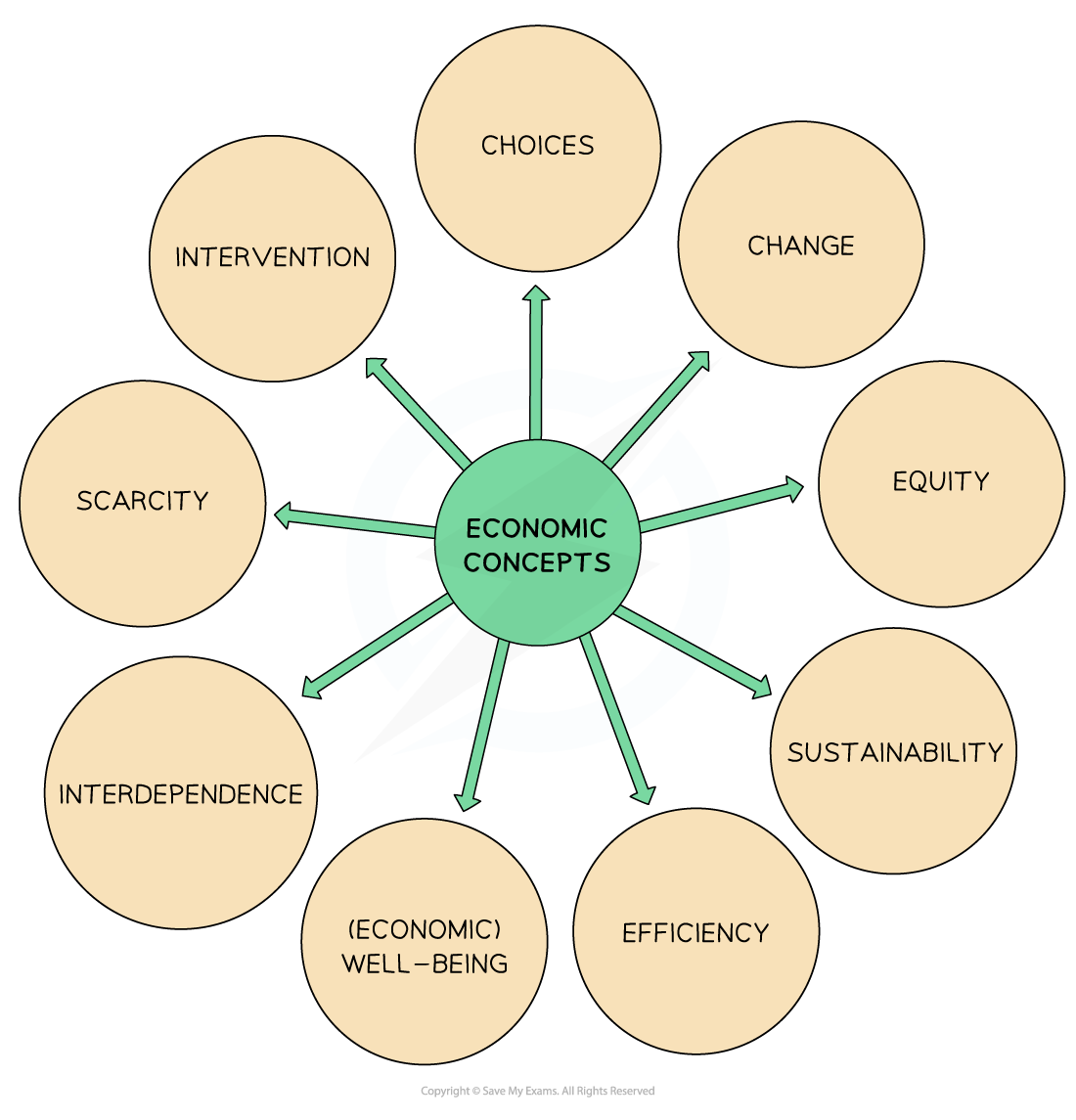- Most student learning focusses on topics and within each topic is the acquisition of facts
- Each topic is better understood within broader concepts
- E.g. globalisation as a topic is interesting, but it makes much more sense when studied within the concept of interdependence that exist between nations
- Understanding the concepts and using them helps to deepen your critical thinking skills
- E.g. Thinking about how a particular tax policy relates to the concepts of equity, efficiency or government intervention requires critical thinking

The nine concepts which all of your learning in economics connects to
Explanations of each Concept as Defined by the International Baccalaureate (IBO)
|
Scarcity
|
Efficiency
|
Intervention
|
|
Change
|
Choices
|
Sustainability
|
|
Equity
|
Interdependence
|
Economic well-being
|
- Scarcity: since resources are scarce, economics is a study of choices. It is clear that not all needs and wants can be satisfied; this necessitates choice and gives rise to the idea of opportunity cost. Economic decision-makers continually make choices between competing alternatives, and economics studies the consequences of these choices, both present and future
- Efficiency: is a quantifiable concept, determined by the ratio of useful output to total input. Allocative efficiency refers to making the best possible use of scarce resources to produce the combinations of goods and services that are optimum for society, thus minimising resource waste
- Intervention: intervention in economics usually refers to government involvement in the workings of markets. There is often disagreement among economists and policymakers on the need for, and extent of, government intervention. There is a considerable debate about the merits of intervention versus the free market
- Change: the economic world is continuously changing and economists must adapt their thinking accordingly. Economics focuses not on the level of the variables it investigates, but on their change from one situation to another. There is continuous and profound change at institutional, structural, technological, economic and social levels
- Choice: since resources are scarce, economics is a study of choices. It is clear that not all needs and wants can be satisfied; this necessitates choice and gives rise to the idea of opportunity cost. Economic decision-makers continually make choices between competing alternatives, and economics studies the consequences of these choices, both present and future
- Sustainability: is the ability of the present generation to meet its needs without compromising the ability of future generations to meet their own needs. It refers to limiting the degree to which the current generation’s economic activities create harmful environmental outcomes involving resource depletion that will negatively affect future generations
- Equity: in contrast to equality, which describes situations where economic outcomes are similar for different people or different social groups, equity refers to the idea of fairness. Fairness is a normative concept, as it means different things to different people. The degree to which markets versus governments should, or are able to, create greater equity or equality in an economy is an area of much debate
- Interdependence: individuals, communities and nations are not self sufficient. Consumers, companies, households, workers, and governments, all economic actors, interact with each other within and, increasingly, across nations in order to achieve economic goals. The greater the level of interaction, the greater will be the degree of interdependence
- Economic well-being: is a multidimensional concept relating to the level of prosperity and quality of living standards enjoyed by members of an economy. It includes ♣ present and future financial security ♣ the ability to meet basic needs ♣ the ability to make economic choices permitting achievement of personal satisfaction ♣ the ability to maintain adequate income levels over the long term
NOTE
The definitions for these 9 concepts have been supplied by the International Baccalaureate (IBO). These concepts are widely defined and open to interpretation, hence it is important to use these concepts exactly as the IBO has defined them

